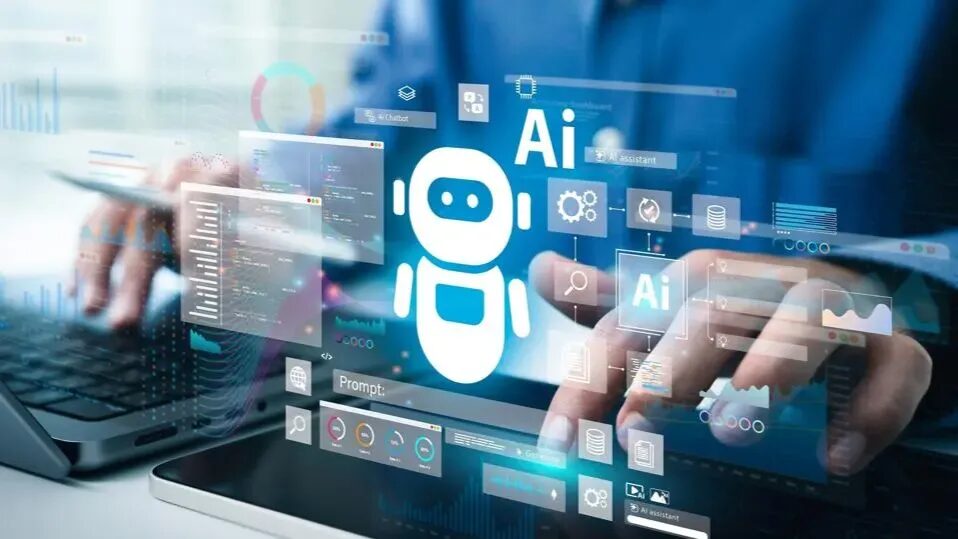Generative AI Sucks: Meta’s Chief AI Scientist Calls For A Shift To Objective-Driven AI
22 April 2024
In a landscape where generative AI is hailed as the frontier of technological innovation, Yann LeCun, Chief AI Scientist at Meta, presents a contrarian viewpoint that challenges the status quo. It was a pleasure to meet Yann LeCun in London this week and listen to his keynote at the Meta AI Day, where he offered a candid critique of generative AI’s limitations and charted a course toward what he believes is the future of artificial intelligence: Objective-Driven AI systems. His assertions are not just opinions but are based on years of pioneering work in AI and machine learning.

The Shortcomings Of Generative AI
Generative AI has captivated the imagination of many with its ability to produce text, images, and even music that can mimic human creativity. Yet, according to LeCun, this technology "really sucks" when compared to the innate learning capabilities of even the simplest animals. He makes the point that Large Language Models, the foundation of today’s generative AI tool, are capable of producing text with superhuman abilities in narrow domains but fundamentally operate by predicting the next word based on preceding input, a process that lacks the ability to genuinely understand context or engage with the physical world, leading to outputs that can be impressively fluent yet often devoid of factual accuracy or common-sense understanding.
In contrast, humans and animals exhibit a profound ability to learn from minimal data, adapt to new situations with agility, and apply learned knowledge in vastly different contexts—capabilities stemming from an intuitive understanding of the world and its complex dynamics. This natural intelligence allows for the development of common sense, a nuanced grasp of physical laws, and the ability to infer and reason in ways that generative AI cannot currently match. LeCun emphasizes that while generative models can dazzle with their output, they lack the foundational understanding and adaptive learning mechanisms that characterize biological intelligence, underscoring a significant divergence in how humans and AI systems process and apply information.
One of the critical limitations LeCun emphasizes is the lack of genuine understanding and innovation in generative AI models. "They hallucinate answers... They can't really be factual," he stated, underscoring the models' inability to grasp the complexity of real-world physics or to generate common-sense responses. This superficial handling of knowledge means that while generative AI can impress with its outputs, it falls short of providing the depth and reliability required for more consequential applications.
Vision For Objective-Driven AI
LeCun’s critique is not without a constructive counterproposal. He advocates for a seismic shift towards Objective-Driven AI that aims to fundamentally redefine artificial intelligence, transforming it from a pattern-recognizing tool into a system capable of understanding, predicting, and interacting with the world with a depth akin to living beings. LeCun envisions an architecture where AI systems develop "world models" — rich, internal representations of how things work, interact, and change. This foundation enables these systems to simulate outcomes, reason about the future, and make informed decisions to achieve specific objectives.
Unlike current AI, which excels in narrow domains without grasping causality, objective-driven AI would be capable of causal reasoning and understanding the relationships between actions and outcomes. This shift would allow AI to plan and adapt strategies in real time, grounded in a nuanced comprehension of the physical and social world.
Objective-driven AI is not just an incremental improvement but a leap toward machines that can truly collaborate with humans, offering insights, generating solutions, and understanding the broader impact of their actions. This vision represents a significant shift towards creating AI that can navigate the complexity of the real world with intelligence and purpose.
Challenges And Optimism For The Future
The journey toward Objective-Driven AI is fraught with scientific and technical challenges. LeCun candidly acknowledges that achieving AI systems that parallel human or animal intelligence is a monumental task, far more complex than many might anticipate. "It's always harder than we think," he remarked, reflecting on the history of AI research that has often been marked by undue optimism regarding the pace of progress.
Despite these challenges, LeCun is optimistic about the future, firmly believing that AI will eventually surpass human intelligence across all domains. This conviction is not grounded in wishful thinking but in a clear-eyed assessment of technological progress and the potential for groundbreaking scientific discoveries. However, LeCun also emphasizes that this evolution will not happen overnight or without a radical rethinking of our current approaches to AI development.
A Call To Action For The AI Community
LeCun's insights serve as a clarion call to the AI research community, urging a pivot from the allure of generative models to the uncharted territory of Objective-Driven AI. This shift demands not only technical innovation but a philosophical reevaluation of what we consider intelligence to be and how it can be replicated in artificial systems.
In concluding his talk, LeCun posed an essential question to the audience and, by extension, to the broader AI community: Are we ready to embrace the challenges and opportunities of building AI systems that truly understand and interact with the world? The path forward is complex and uncertain, but the potential rewards—AI that can genuinely reason, learn, and innovate—could redefine our relationship with technology and unlock new horizons of human potential.
As we stand on the brink of these advancements, LeCun's message resonates not just as a critique but as an invitation to embark on one of the most exciting scientific and technological journeys of our time. The future of AI, as envisioned by LeCun, is not just about creating machines that generate content but about building systems that can think, learn, and, perhaps one day, understand the world with the depth and nuance of the human mind.
Related Articles
The Important Difference Between Agentic AI And AI Agents
By now, “smart” versions exist of just about every home appliance, gadget and gizmos we can think of. However, manufacturers continue[...]
Why Trust Is The Missing Ingredient In Your AI Strategy
By now, “smart” versions exist of just about every home appliance, gadget and gizmos we can think of. However, manufacturers continue[...]
Forget ChatGPT: Why Agentic AI Is The Next Big Retail Disruption
By now, “smart” versions exist of just about every home appliance, gadget and gizmos we can think of. However, manufacturers continue[...]
OpenAI’s GPT-5 Is Coming: Here’s What We Know So Far
By now, “smart” versions exist of just about every home appliance, gadget and gizmos we can think of. However, manufacturers continue[...]
6 Powerful AI Prompts That Will Help You Learn And Ace Exams (Without Cheating)
By now, “smart” versions exist of just about every home appliance, gadget and gizmos we can think of. However, manufacturers continue[...]
5 Fatal GenAI Mistakes That Could Destroy Your Business In 2025
By now, “smart” versions exist of just about every home appliance, gadget and gizmos we can think of. However, manufacturers continue[...]
Sign up to Stay in Touch!
Bernard Marr is a world-renowned futurist, influencer and thought leader in the fields of business and technology, with a passion for using technology for the good of humanity.
He is a best-selling author of over 20 books, writes a regular column for Forbes and advises and coaches many of the world’s best-known organisations.
He has a combined following of 4 million people across his social media channels and newsletters and was ranked by LinkedIn as one of the top 5 business influencers in the world.
Bernard’s latest book is ‘Generative AI in Practice’.










Social Media